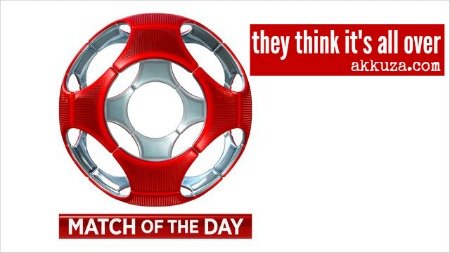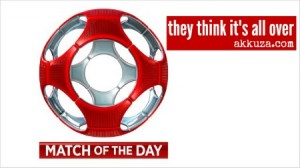 Minister Mallia has justified the posting of army personnel at the entrance of ministries by claiming that extra security is needed. “Security from what?”, we felt obliged to ask, “Ze Germans?”. Well, as it happens, the immunity and safety of our representatives (on the opposition side, but who’s bothering with these details?) was actually threatened by a holder of a passport issued by the Bundesrepublik.
Minister Mallia has justified the posting of army personnel at the entrance of ministries by claiming that extra security is needed. “Security from what?”, we felt obliged to ask, “Ze Germans?”. Well, as it happens, the immunity and safety of our representatives (on the opposition side, but who’s bothering with these details?) was actually threatened by a holder of a passport issued by the Bundesrepublik.
One of the big news items yesterday was that PN MPs Frederick Azzopardi and Censu Galea were involved in a freak traffic accident that ended up with them being hospitalised. For a few fleeting news minutes you got the impression that there might have been some political motivation behind the traffic accident since we got a description of someone barging into the honourable gentlemen’s (yes, there is a bit of tongue in cheek behind the use of that appelation) vehicle. The description was one of crash, insult, drive away. Why else would someone stop and insult two MPs (two for the price of one even) if not for some political motive?
Anwyays. It seems that a traffic incident involving members of parliament must have some form of “crimen laese majestatis” classification (crimes against the king) since the long arm of the law were apparently up all night searching for the perpetrator of this crash’n’run. Now I have no disrespect for messers Azzopardi and Galea and do hope that in the end their hospital visit was for a routine check-up and that they escape the affair unscathed but you do get the feeling that our political class are reserved some extra attention worthy of divas a little bit too often. Would the PCs of our realm have stayed up all night trying to get lucky finding an anonymous perpetrator (not so anonymous – how many Volvos with foreign number plates can there be on the island?) if it was you or me who were in the driving seat of the car that got rear-ended.
What? You don’t know what “rear-ended” means? Oh come on. You’re so two thousand and late. It means (apparently) that your car got barged into from behind (hence, rear-ended) by another in a not too comfy fashion. I had to compare MaltaToday’s report with that of the Times in order to come up with that explanation. Sorry but some jargon is not exactly up my old-fashioned street. Also, I was rather thrown by the idea that two of our MPs drove a car that also doubled as a stationery. So that is how Frederick and Censu make ends meet? Selling sharpeners and stencils after hours?
Here is the relevant part of the MaltaToday report just in case you think I jest. I’ve given it the Lorna treatment. Been a while…
This morning at around 8.00am the District Police arrested a German national who allegedly crashed into a car carrying two Nationalist MPs, Censu Galea and Frederick Azzopardi [Strong people these Germans. They crash into cars and then walk off. Unbreakable]. The accident happened yesterday at Triq ix-Xatt in Pietá.
The two MPs were in a Toyota driven by Azzopardi and their car was stationery near the KPMG offices [Investigators are out on the street right now trying to understand whether the MPs car was actually being used as stationery by employees of the KPMG firm or whether the car was actually doubling up as a stationery on wheels] when the German, driving a Volvo with foreign number plates [Have you ever tried manouevering a steering wheel using just number plates? It’s effing hard. I promise. Even for a German.], rear-ended [This gets confusing (see above). At first I thought the German did some weird manouevre other than use number plates to drive a car, then I sort of understood] and pushed the Toyota more then 10 meters [Let’s get finnicky shall we? First of all, “then” and “than”… right… you got that one. Next up. “Meters”. Electricity meters? Parking meters? Ah no…. American Style spelling of the measure equal to 100 centimetres] .
Following the incident, the man alighted [Did you know that the first recorded use of the word “alight” was in the General Prologue from the Canterbury Tales?] from his vehicle and hurled insults at the two MPs. However by the time the police arrived on the scene, the man had driven away [having presumably un-alighted and applied his number plate driving skills].
Both Galea and Azzopardi were hospitalised and treated for slight injuries.
The search for the foreigner was on all night [They stayed up all night to Get Lucky] but it was not until this morning that the man was arrested at his residence in Pietá [Did you see that? Accident in Pietà, residence in Pietà, foreign number plates, and we spend all night to find him]. He is being kept by the police for further investigations and will be arraigned in court in the coming days.
Police Inspector Jason F. Sultana is leading the investigations.











